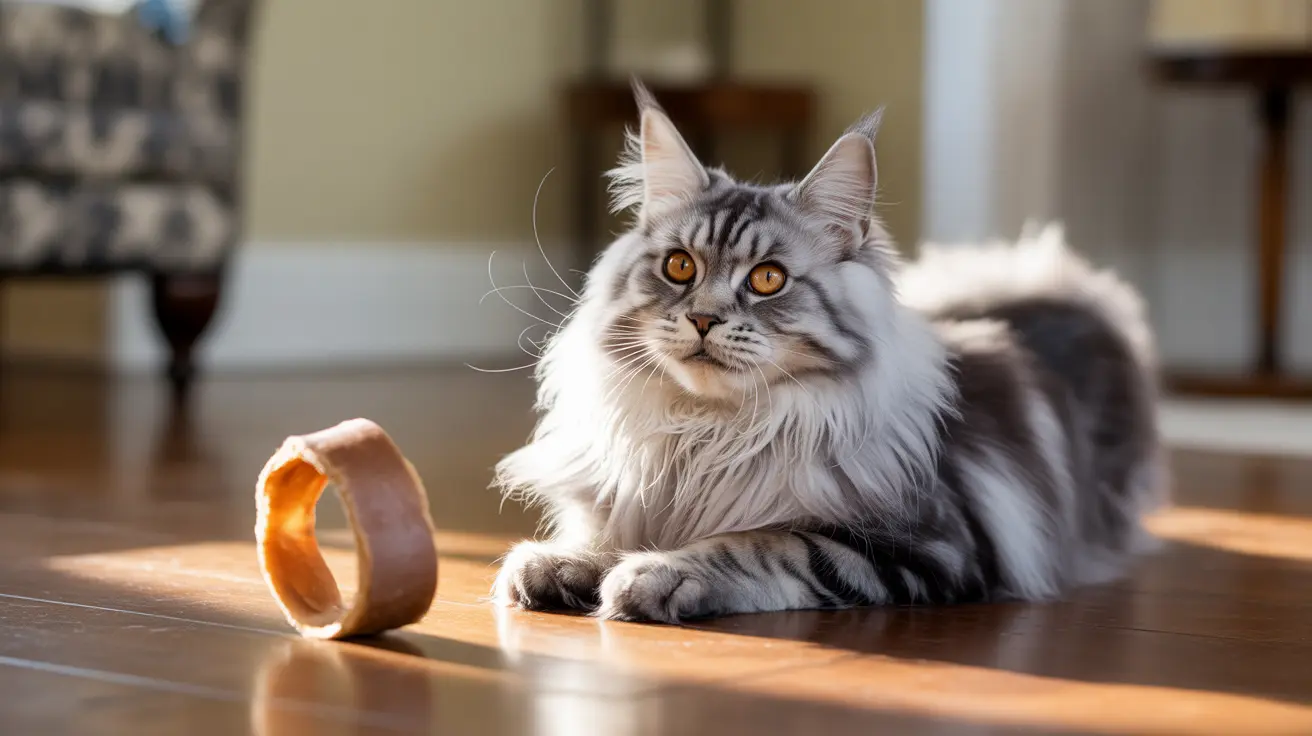What Is Rawhide and Why Is It Dangerous for Cats?
Rawhide is an animal by-product made from the inner layer of cow or horse hides. The manufacturing process involves harsh chemicals like sodium sulfide and hydrogen peroxide to clean and preserve the material. This processing makes rawhide particularly unsuitable and potentially dangerous for cats.
Unlike dogs, cats have neither the jaw structure nor the digestive system to safely handle rawhide. Their carnivorous nature means they're designed to process meat, not chemically treated animal hide products.
Major Health Risks of Rawhide for Cats
Choking and Obstruction Hazards
When cats attempt to chew rawhide, they may bite off pieces that can become lodged in their throat or digestive tract. These pieces can swell up to four times their original size when wet, potentially causing life-threatening blockages.
Chemical Exposure
The chemical treatments used in rawhide production can leave harmful residues that may cause adverse reactions in cats. These chemicals can include:
- Sodium sulfide
- Hydrogen peroxide
- Bleaching agents
- Chemical preservatives
Digestive Problems
Cats lack the necessary enzymes to break down rawhide properly. This can lead to various digestive issues, including:
- Stomach upset
- Vomiting
- Diarrhea
- Intestinal blockages requiring surgery
Safe Alternatives to Rawhide for Cats
Instead of rawhide, consider these cat-appropriate alternatives that can satisfy your pet's natural chewing instincts:
Specially Designed Cat Treats
Look for treats specifically formulated for cats that promote dental health while being fully digestible. These often contain ingredients like chicken or fish proteins that cats can safely process.
Interactive Toys
Provide engaging toys that encourage natural hunting and playing behaviors without posing health risks. Options include:
- Catnip-filled toys
- Soft fabric mice
- Dental health toys designed for cats
- Puzzle feeders
What to Do If Your Cat Accidentally Consumes Rawhide
If your cat manages to get hold of and consume rawhide, watch for these warning signs:
- Difficulty breathing
- Excessive drooling
- Vomiting
- Lethargy
- Loss of appetite
- Abdominal pain or swelling
Contact your veterinarian immediately if you notice any of these symptoms. Quick action could prevent serious complications.
Frequently Asked Questions
Can cats safely chew or eat rawhide treats?
No, cats should never be given rawhide treats. Their digestive systems aren't designed to process rawhide, and these treats pose significant choking and obstruction risks.
What health risks does rawhide pose to cats if ingested?
Rawhide can cause choking, intestinal blockages, chemical exposure reactions, and severe digestive problems. The material can swell inside the digestive tract and may require emergency surgery to remove.
Why is rawhide not suitable for a cat's dietary and chewing needs?
Cats are obligate carnivores designed to eat meat. Their digestive systems can't process rawhide, and their jaw structure isn't meant for chewing such tough materials. Additionally, rawhide offers no nutritional value for cats.
What are the safer chew or treat alternatives recommended for cats?
Safe alternatives include specially designed cat dental treats, catnip toys, soft fabric toys, and interactive puzzle feeders. Always choose products specifically made for cats and approved by veterinarians.
What should I do if my cat accidentally swallows a piece of rawhide?
Monitor your cat closely for signs of distress, including difficulty breathing, vomiting, or lethargy. Contact your veterinarian immediately if you notice any concerning symptoms, as prompt medical attention may be necessary.
Conclusion
When it comes to cats and rawhide, the risks far outweigh any potential benefits. Keep your feline friend safe by choosing appropriate, cat-specific treats and toys instead. Always consult with your veterinarian about the best treat options for your particular cat's needs and health status.






